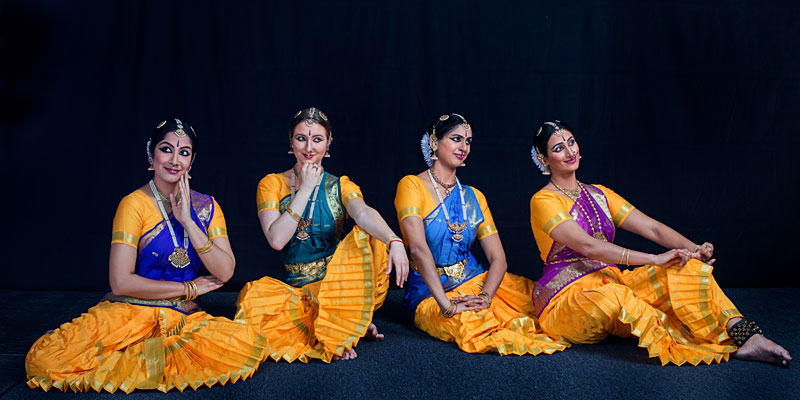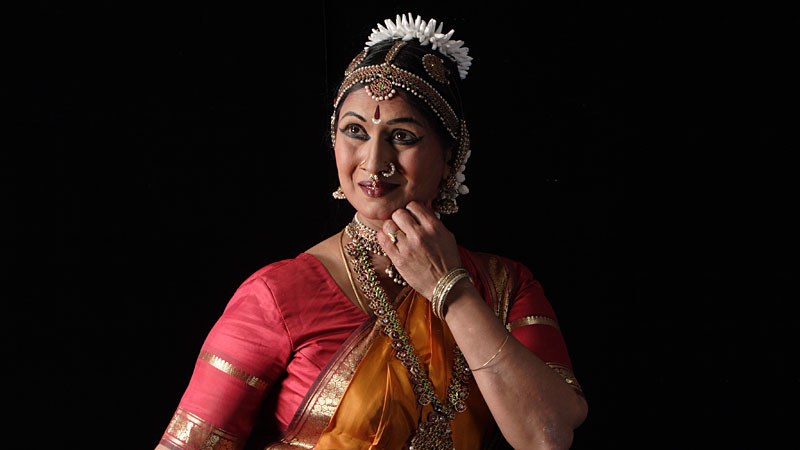In 1978, Mythili Kumar moved from Central India to California because a Rotary Club gave her a full scholarship to UC Davis as a “cultural ambassador.” Surely the Club had little idea just how dazzling an ambassador Kumar would turn out to be.
Kumar had trained in a variety of classical Indian dance forms and was especially skilled as a performer of Bharatanatyam, a South Indian style passed down by temple dancers who used its elaborate gesture language — called abhinaya — to reenact Hindu epics. After graduating (with a degree in nutrition), Kumar married and settled in San Jose, where Indian families soon began begging her to teach their daughters to dance. Her husband — then a Stanford professor — was all for it, and in 1980 the Abhinaya Dance School of San Jose was born.
Today the Abhinaya school has trained more than 100 Bharatanatyam dancers to the point of giving their arangetram, a rigorous solo debut that marks a dancer’s arrival as a professional dancer. The 14-member Abhinaya Dance Company, founded in 1986, has performed nationally and internationally. And Kumar herself has been honored with a long list of prestigious awards and fellowships. On April 22nd, she will collect one more when Silicon Valley Creates recognizes Kumar’s 35 years of artistic accomplishment by presenting her with its Legacy Laureate Award. This Sunday, the Abhinaya Dance Company will present a special concert featuring guests flown in from India.

Everything Kumar does seems driven by a sense of service rather than from personal ambition. On a recent Friday, after returning from the airport where she picked up special concert guest Indra Rajan, Kumar asked if we could delay our interview 20 minutes so that she could serve her now 85-year-old former teacher a homemade lunch.
Kumar returns often to India to visit Rajan, her living connection to a sophisticated cultural past that immigrant families hope to keep alive in their children. For many Indians who immigrated, Kumar says, “When they were growing up in India the focus was on studying and getting a job, not learning music at home.” Now these immigrants are excited to give their children a cultural experience they never had.


